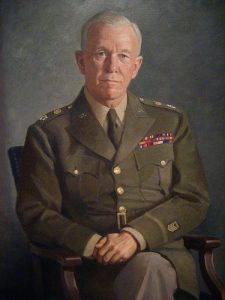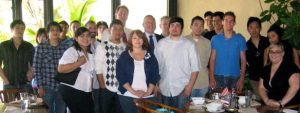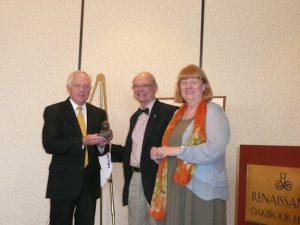Bulletin #25 - Jul 2010
Churchillians Visit the U.S. Naval War College
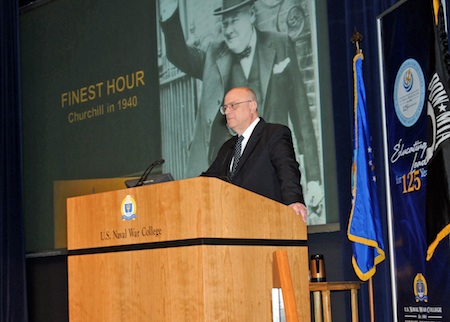
May 10, 2010
NEW ENGLAND
Newport, Rhode Island, 7 May 2010
The New England Churchillians enjoyed a day visit to the U.S. Naval War College for a lecture entitled “His Finest Hour: Churchill in 1940,” given by Professor John H. Maurer, chairman of the college’s Department of Strategy and Policy and member of the Centre’s Board of Academic Advisers. Illustrating his talk with quotations, photographs, maps and charts, Dr. Maurer surveyed the march toward war throughout the 1930’s. He developed his theme that Churchill’s leadership was critical in 1940, not only to rally the British people to stand alone after their defeat on the continent, but also to quash back-channel efforts by members of the government to parley with the Nazis in the summer of 1940.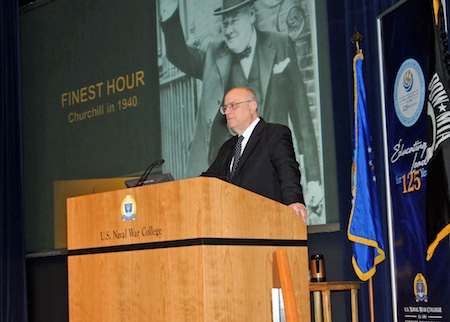
Using the words of Churchill, Hitler, Göring and Goebbels, Dr. Maurer showed how Churchill exercised effective leadership by communicating to different audiences: the British people, the government and people of the United States, the captive peoples of Europe, and the enemy.
Churchill’s leadership qualities were evident not only to the British whom he led, but also to his enemies. Dr. Maurer quoted Hitler telling Ribbentrop in 1937 that Churchill would be prime minister in five years and that Germany “will then be in a fine mess!” unless he struck sooner; and Speer relating that on hearing of Churchill’s return to the cabinet in 1939, Göring “dropped into the nearest chair and said wearily: ‘Churchill in the cabinet. That means that the war is really on.'”
Churchill effectively laid to rest any question of Britain seeking peace with Hitler by his reluctant but decisive action that kept the French fleet from falling into German hands. Dr. Maurer quoted Churchill’s July 4, 1940 statement in the House that this “should be, in itself, sufficient to dispose once and for all of the lies and rumors … that we have the slightest intention of entering into negotiations … with the German and Italian Governments.” He also quoted from Churchill’s speech ten days later how Britain would resist any invasion: “I am bound to state these facts, because it is necessary to inform our people of our intentions and thus to reassure them.”
After lunch, the group repaired to the Naval War College Museum for a tour, preceded by remarks by Dr. Maurer on the past, present and future of the Naval War College and by Rear Admiral Glenn Whisler about the Naval War College Foundation.
Subscribe
WANT MORE?
Get the Churchill Bulletin delivered to your inbox once a month.

